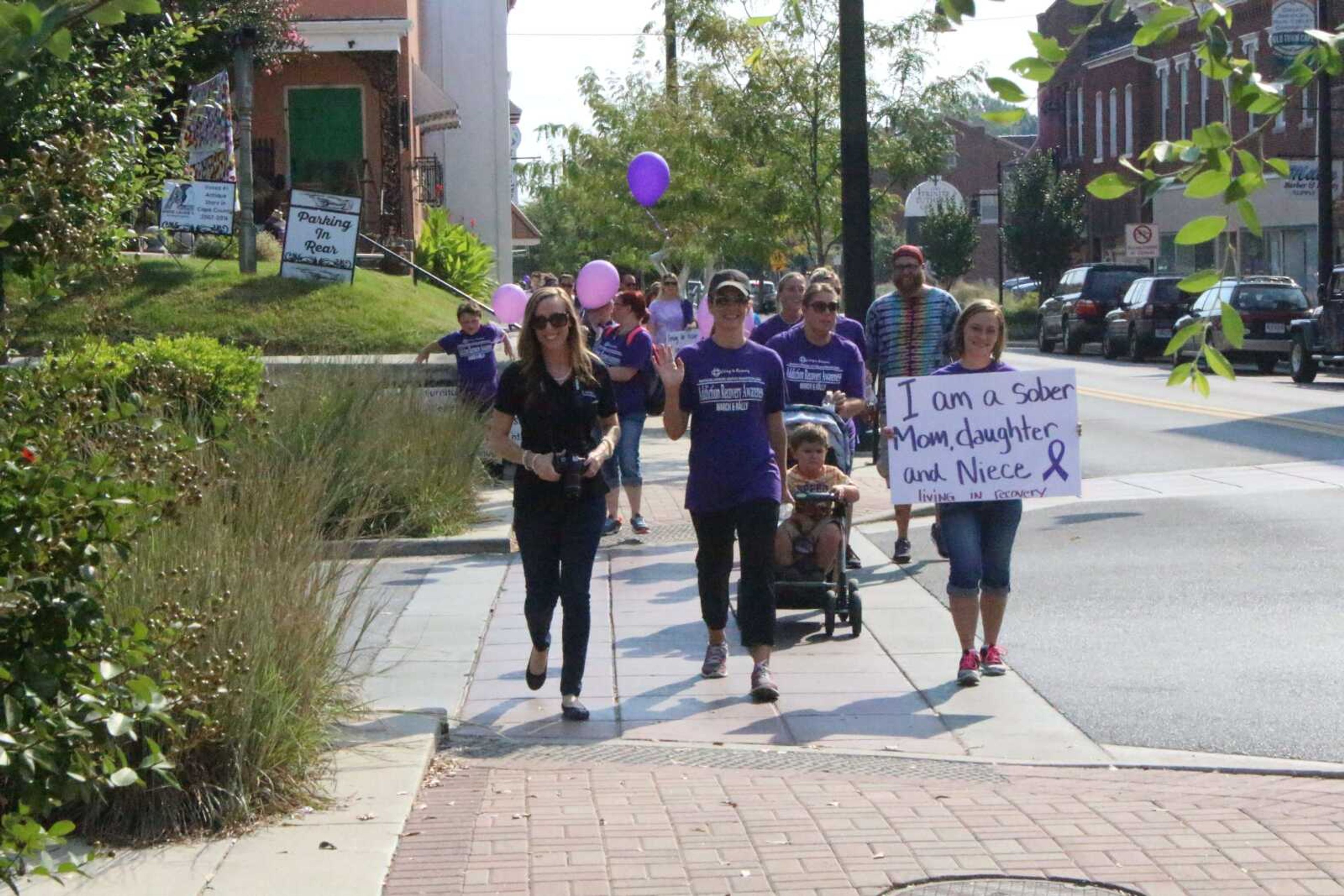The first annual Addiction Recovery March took place on Sunday, Sept. 25, in downtown Cape Girardeau. The march's purpose, as many of the participants said, was to change the conversation from addiction to recovery.
The event was put on by Living in Recovery. Kristi Booth, an organizer of the event, has been in recovery for 13 years.
"We put this together to change the conversation on addictions and recovery to focus more on the recovery aspect of it," Booth said. "You know, addiction is in the active part of the disease of substance use disorder, and recovery is more on the lighter side when you come through and you're starting to put pieces together and change your life."
She's seen the results of recovery herself.
"Well, I went from not having a life, being homeless, being without anything, being without family to now I have two daughters, I have a 5 year old and an 11 year old, and a very loving husband," Booth said. "The whole idea of this is to get people's awareness that people can recover, we do recover and to help us change policies and laws to support recovery."
Terri Crain, substance abuse counselor at the Gibson Recovery Center and a recent graduate of Southeast Missouri State University, said people don't really think addiction will happen to their family, until it does. She added that there was a variety of people in attendance.
"There's a lot of people here," Crain said, "We have nurses, doctors, lawyers, all different walks of life."
These different walks of life also included current Southeast students.
Lara White, a sophomore at Southeast who also works for the Gibson Recovery Center, has been personally affected by addiction. She said her mom was an addict, which led to her growing up without a mother.
"They need good grounding to keep them motivated and keep them going," White said. "I want to be able to make that difference."
Southeast staff members also were in attendance.
"I'm here to support the people in recovery because we have a whole lot of students who are also in recovery at the university," Mary Ann Farmer, a mental health counselor at Southeast, said. "There's just a wide range of students that go to Southeast, a lot of them come into our offices. We have a program called the Substance Abuse Prevention Education Program, and we have counselors who specialize with addictions and so we're really hoping to get a recovery group started on campus, and that's what we would really like to do."






